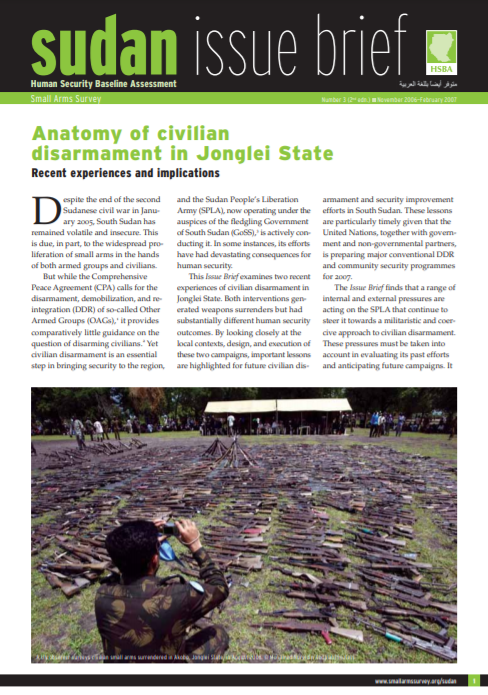
Anatomy of Civilian Disarmament in Jonglei State: Recent Experiences and Implications (HSBA Issue Brief 3)
Anatomy of Civilian Disarmament in Jonglei State: Recent Experiences and Implications examines two recent experiences of civilian disarmament in Jonglei State. Both interventions generated weapons surrenders but had substantially different human security outcomes. By looking closely at the local contexts, design, and execution of these two campaigns, important lessons are highlighted for future civilian disarmament and security improvement efforts in South Sudan. These lessons are particularly timely given that the United Nations, together with government and non-governmental partners, is preparing major conventional DDR and community security programmes for 2007.
The Issue Brief finds that a range of internal and external pressures are acting on the SPLA that continue to steer it towards a militaristic and coercive approach to civilian disarmament. These pressures must be taken into account in evaluating its past efforts and anticipating future campaigns. It also finds that due to current constraints in the mandates and capacities of various UN agencies on the ground, the international community is poorly positioned to support a voluntary approach targeting civilians. Before more comprehensive, pacific civilian disarmament can be achieved, a deeper understanding of local dynamics affecting the SPLA’s approach, and the unwillingness of certain communities to disarm, is required.
Also available in ARABIC
- More about the HSBA project
Have your say about Small Arms Survey publications and products: take 5 minutes to fill out our questionnaire.